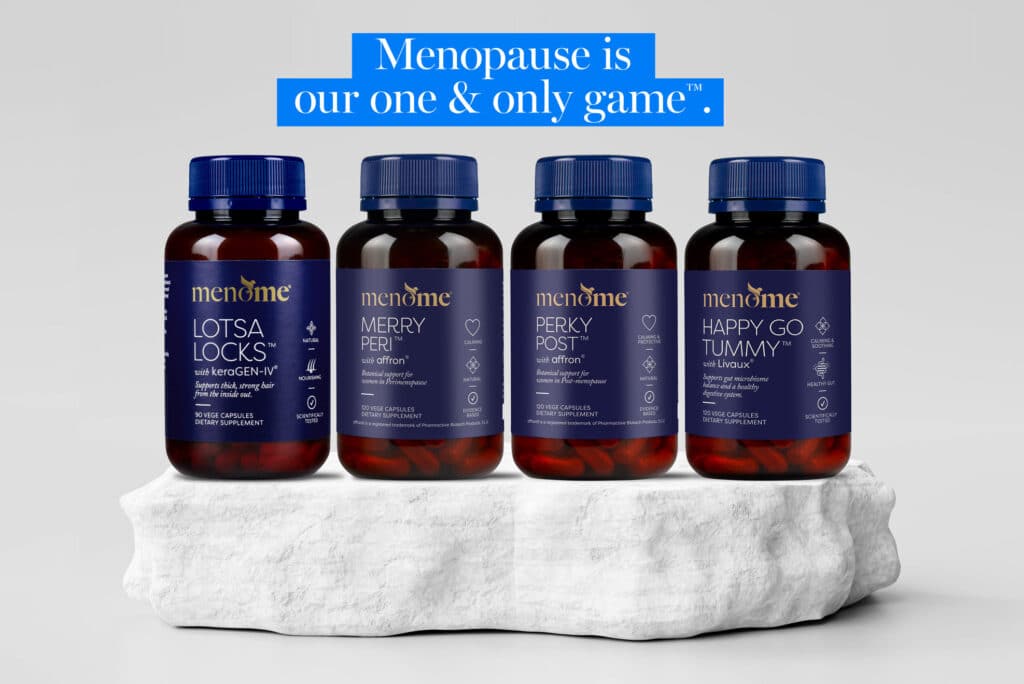When you’re experiencing perimenopause or even post-menopause sometimes it can feel overwhelming. Especially if you’re alone a lot more. Perhaps you work at home post-covid, the kids are at school or they’ve flown the coop, or you’re newly retired. Indeed, there’s a lot of ‘could-be’s’ here in midlife or you might simply be feeling blah as you grapple with a new season of your life.
Sometimes it can feel all too easy to stay in your PJ’s or exercise gear and lie on the couch watching Netflix. Especially if you’re feeling low on energy, down in the dumps or have lost your usual confidence.
Try these little tips to add some va va voom to your day:
1. Keep doing the basics like making the bed, showering, getting dressed and putting your lippy on.
2. Don’t forget to take your Merry Peri® or Perky Post® for your hormone health and to support your immunity during peri or post-menopause. So many people forget their usual habits when their going through change.
3. Eat healthy food (avoid getting into the junk/comfort food habit at all costs).
4. Keep hydrated. Not drinking enough can magnify symptoms.
5. Exercise daily, it can make so much difference to your mood.
6. Consider an ‘pick-you-up transformation’. If you’d like to lose a few kgs, let your hair go grey or grow your nails out give yourself permission to try it.
5. Remember to keep connected because community is everything during the menopause years..
6. If you’re working set focused working times in 90-minute blocks followed by a 15-minute break, and don’t forget to take a lunch break. There’s great science behind this.
7. If you’re not working try learning something new, read that book you’ve been putting off, declutter your wardrobe and put a time limit on binging on Netflix.
8. Do something fun.










